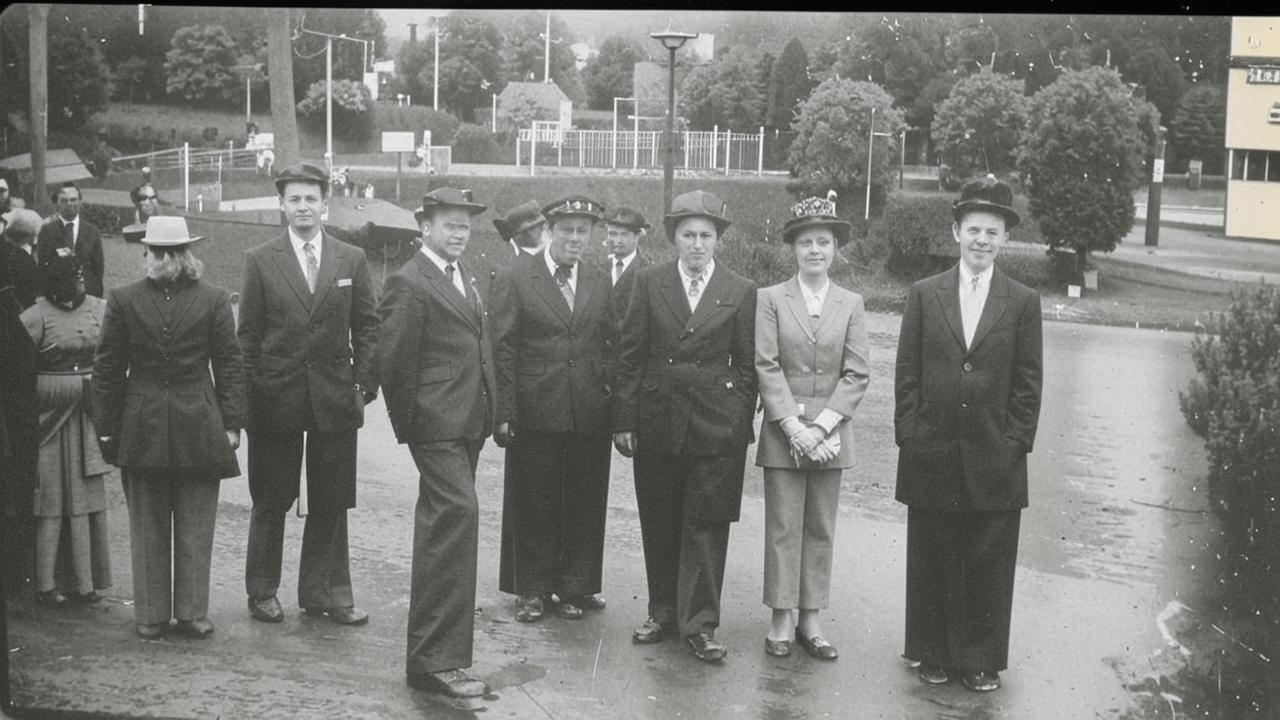People periodically ask themselves the question: “What is it all for? What is the meaning of life?”. There can be a global philosophical reflection, but more often such thoughts concern themselves. It’s about personal goals in life, one’s interests. We want to live a meaningful life.
If you can’t answer these questions, there may be a desire to change your life And here comes the most important problem. How to find that very goal, which will become a guiding star and ignite interest in life? Let’s deal with this difficult matter together with psychologist Ekaterina Korovushkina.

Psychologist, expert of the online school of psychological professions “Psychodemia”
“The purpose of life is the biggest task that one wants to realize. A person can have many big tasks: to build a successful career, to live in a house near the forest, to create a happy family. But the purpose of life is the most important. Although no one forbids to include in it all of the above-mentioned”.
You can make goals out of any desires, but they will turn into a goal only at the moment when they acquire a clear form. It is important that some actions are directed towards their achievement.
Unlike dreams, the purpose of life implies constant labor, daily work. If you think about what is important to you every day and do something for it, it means that you are going to your goal.
A goal is a future desired result. Setting it helps to structure, organize and begin to control your activity. In general, it teaches you to take responsibility for your life.
Most often when the word “goal” is mentioned, a material object appears in front of our eyes. In fact, you can set them in absolutely any area of life. Set goals in career, health, family, social or spiritual spheres. Everywhere you want to change something in your life, you can deploy a field of activity.

Goals can be categorized into:
- long-term (strategic) – for a period of 5-10 years or more. It is understood that your strategic goals are based on your values and priority system (or are they at all, if you are not ready to formulate clear objectives for a long period of your life);
- Medium-term (tactical) – for a period of one to five years. Tactical goals, in turn, are based on strategic goals, but are more detailed and tied to the current reality;
- short-term goals – for a period of up to one year. Short-term goals are the most understandable, and therefore should be formulated as clearly and in detail as possible. They, in turn, can be divided into quarters or by months.
A correctly set goal is a powerful motivator, a source of energy and inspiration. It energizes optimism and fills life with meaning. If your goals make you work hard, cause stress and overload – perhaps they need to be reviewed and adjusted. Also, remember that it’s perfectly normal for some global goals to lose their relevance. We live in a world that is constantly changing, so goals can transform or disappear altogether.
Why is it normal not to have goals?
The cult of productivity that dominates our society nowadays imposes the idea that if you don’t hold a high position, own an apartment, a car or have never been to Bali, there is something wrong with you. Perhaps you just haven’t set goals in time… Or you haven’t been able to achieve them.
However, it’s important to realize that you have every right not to have any goals. Except at work, in case you are required to have them.
In your personal life, which is only yours and in which you are not obliged to achieve the set indicators, it is quite possible to be happy without goals. And it’s also possible to be unhappy with 10 perfectly formulated ones.
Perhaps, in your case, you should abandon goals altogether, putting life values in their place. Follow them. For example – the value of being productive. It’s an aspiration that you can always follow. Or the value of being a good father, which can include activity in matters of education, and joint travel with children. The only thing left is to decide what you want to focus on in the near future.
If you still want to systematize your dreams, desires and turn them into goals, then let’s try to find and formulate them according to the rules. In fact, it is not so difficult.

How to find a goal in life?
Sometimes it’s very tempting to copy other people’s goals, but there are no universal ones. What suits your coworker may absolutely not suit you. On the “copy” you can spend a lot of time, and having achieved, get disappointed and depressed, because it is not what you really want.
A goal is really good if you feel warmth and attraction when you think about it, if you just like it, without any “well, everyone wants it”.
“What do I want personally?”, “What makes me feel happy”. – it’s important to ask yourself these questions. Buy a new suit or a dog? To feel more valued at work? These are great desires. They may need to be tweaked or refined, but they’re perfectly viable and can be great short-term goals.
What do you enjoy doing in your free time? Write it down. Look at the list in terms of possible goals. Now think about what you don’t want to do.
For example: “I don’t want to go to a job I hate” or “I don’t want to have a bad relationship with my wife.” Now turn these into positive goals, restate them in a positive way. For example: “I want to get a job I like.” Bingo! We have a great tactical goal worthy of elaboration and capable of making you happy.

So how exactly do you formulate your goal so that it’s easier and more productive to work with?
One popular and really working goal setting technique is SMART.
SMART-methodology was first proposed by Peter Drucker in his work “The Practice of Management” (The Practice of Management) in 1954. Since then it has been actively used both in the management of organizations and in personal planning.
So, according to the methodology, the goal should be:
- S – Specific –specific, transparent, definite. The goals should be as clear and understandable as possible. Avoiding double interpretations and subjective judgments. For example: not to lose weight, but to lose 7 kg.
- M – Measurable – measurable (there should be objective measurers). Everything that we can’t count is unmanageable. Let’s return to kilograms – we can weigh them and understand whether we have achieved our goal or not.
- A – Attainable – attainable, realistic. If you don’t know how to drive a car now and have never even tried, it is unlikely that in a week you will get a driver’s license. Even if you really want to. But to get it in two months, having undergone training, is quite realistic.
- R – Relevant – Relevant, Relevant, Relevant. We don’t set goals we don’t believe in. We don’t set a goal for something we basically don’t need. Dreaming about flying into space is possible, but setting a goal to fly there tomorrow is more of a fantasy (unless you are Ilon Musk, of course), and it is not really necessary.
- T – Time-bound. We tend to shift goals without a precise time frame: “It’s been two years since I’m going to start running”. So remember to not only set goals, but also decide when you’re going to accomplish them.
And what to do if you have goals, but you can’t take action to realize them?
When you don’t want to do anything and everything is lazy, perhaps there is some inner belief or repressed emotions that control your actions. Do not scold yourself by forcing yourself to work from under a stick. It is better to listen to your inner voice, recognize your fears and try to release the resources blocked by these beliefs. If you do not succeed on your own, you can turn to a psychologist.
Another condition for staying motivated is self-compassion. Treat yourself with understanding, acceptance and warmth at the moment when you fail or are upset about something.
Achieving a goal is a process of many steps, and even if you stumble at any of them, it is important not to berate yourself for a mistake or lack of effort. You just need to analyze what went wrong and why, draw conclusions and integrate this experience into future actions.
Ups and downs are normal components of any journey. The main thing is not to give up and move on. Praise yourself for small victories and remember that even micro-steps towards a big goal every day will still bring you closer to it.

How to motivate yourself on the way to your goal?
Jälgige oma toitumist. See määrab suuresti inimese motivatsiooni, mõjutades tema heaolu ja tootlikkust. Te juba teate spordist, väljasõitudest looduses ja regulaarsetest kontrollidest. Mõnikord on parim puhkus motivatsiooni taastamiseks tegevusalade vahetus.
Võta aega oma lemmiktegevuseks, hobiks, isegi kui sinu suured eesmärgid nõuavad tähelepanu. Aju on nii organiseeritud: kui ta näeb edu ühes eluvaldkonnas, siis ta ekstrapoleerib selle kõigele. See tähendab - te saate olla kindel, et te ei suuda mitte ainult suurepäraselt kebabit valmistada, vaid ka täpselt toime tulla selle söömise tagajärgedega.
Mõnikord tundub, et "asi on üle jõu käiv", sest eesmärgi saavutamise sammud tunduvad liiga üldised ja arusaamatud. Kuidas siis end motiveerida, et töö ära teha? Jaotage iga samm mini- või isegi mikrosammudeks, millest igaüks on teile selge ja arusaadav.
Andke endale luba ebaõnnestuda. Aktsepteerige asjaolu, et kõik teevad vigu. Halbu tulemusi ei ole olemas. Nad kõik toovad meile väärtuslikke kogemusi.
Tegelege enesearendusega. Kui süsteem ei arene, siis ta degenereerub. Mitte miski ei jää igavesti samale tasemele. Lugege inspireerivaid raamatuid, tellige teemakohaseid blogisid, suhtle sarnaselt mõtlevate inimestega.

Nüüd on saanud populaarseks ühendada huvid: lillekasvatajad, meedikud, psühholoogid, ehitussõbrad või õige toitumine. Võite leida endale meelepärase kogukonna nii reaalses maailmas kui ka veebikeskkonnas. See on suurepärane võimalus mitte ainult saada vajalikku teavet, vaid ka motivatsiooni edasiseks arenguks. Inimesed teie "teemast" võivad mõista, kaasa tunda, nõustada, toetada, sest nad on juba läbinud samad etapid kui teie.
Oluline on mõista ka teist asja. Kui tunnete, et suhtlemine muutub koormavaks ja nõuanded muutuvad moraliseerimiseks või võtavad teie jaoks ebameeldiva tooni, on teil alati õigus see mürgine suhtlemine lõpetada.
Samuti võite otsida partnereid ühistegevuseks kolleegide, sõprade või sugulaste hulgast. Nii saate te teineteist julgustada, kusagil ei lasta teil teelt kõrvale libiseda, kusagil kaasa tunda ja mitte lasta teil meeleheitesse langeda. Inimesed õpivad "inimestest", nii et seltskond võib olla suurepärane kool.
Kokkuvõtteks tahaksin teile veel kord meelde tuletada, et te ei pea seadma eesmärke, kui teil ei ole selleks soovi. Te ei pea järgima tavapäraseid standardeid ja tahtma seda, mida kõik teie ümber tahavad. Aga kui teil on vajadus eesmärke seada, siis peaksite seda tegema. See, kuidas täpselt te neid seate, ei ole nii põhimõtteline. Oluline on liikuda nende täitmise suunas.






